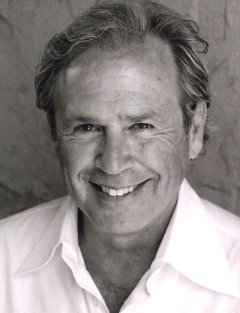Have We No Shame?
This is a weird world we live in. Britney’s VaJayJay (Hey, Oprah can say it, so why can’t I?) is displayed all over the Internet. And apparently, her mother has the chutzpah to write a book on parenting. And if I want to know about Stephanie’s philosophy of life-she is 19 and from Atlanta (“Men may wear the pants, but I control the zipper”)-all I have to do is become her “friend” on MySpace, and it all will be revealed.

What is this world coming to?! Okay, so now I am officially sounding like my parents.
They did have their worries. What was with all of that long hair, tie-dyed shirts, and guiltless pre-marital sex? The parents I had to listen to said things like: “Don’t air your dirty laundry in public” and “Discretion is the better part of valor.” What once seemed like archaic bromides, I have to admit may now have some fizz.
I come from the generation that generally eschewed what many of us saw as our parents’ shame-based protocols of keeping secrets. We defiantly took off the bras and let it all hang out. Now we have children or grandchildren of our own who we wish would get back in the box and stop revealing to the entire world (at least those with Internet access) their dirty skivvies.
Everyday Americans regularly cry about their problems to the ever-empathetic Diane Sawyer on Good Morning America. Brad can’t experience a bout of constipation without the magazine racks blaring speculations about what it means to Angelina and her ever-dubious commitment to America’s hunk. And your sons and daughters are letting complete strangers in on what turns them on and what turns them off la social networking sites (when they aren’t shouting it into their cell phones in public places).
Have we no shame?!
According to Richard Harrison, a doctoral intern at UCSB’s Counseling Center, all of this rampant self-disclosure just might be therapeutic. He would know something about this, as he not only did his doctoral dissertation on a related subject but he has published an online journal-about the loss of his mother at an early age-that is both erudite and painfully personal. In it, he writes: “Being witnessed is at the heart of being human. It is in the eyes of another that human identity unfolds. This is true for adults as well as infants. Being seen fosters self-perception. When my actions are witnessed, received, held and reflected in the eyes of another being, I too am being. I become.”
Why this need to be seen, “held in the eyes of another” is such an intensified desire in our current culture is a more profound question than I can address in this column. But one thing we can be sure of: When this current need for confession meets the rich connectivity of modern technology, at least in our American culture, the dollar hounds cannot be far behind.
A recent New York Times article about Facebook, the popular social networking site among young people, revealed that this community of 52 million wanton self-disclosers is becoming fodder for Madison Avenue; their disclosed preferences and movements through the world are being mined for targeted ads. It is pretty smarmy, yes, but in this materialistic society, not surprising. The consumer has become the consumed.
This topic is a difficult one for this psychologist who came to manhood in the late 1960s. Being open and honest about one’s truth is a mentally healthy thing to do, I have no doubt. And yet, my psychological training instructs me to be very thoughtful about the power and impact of self-disclosure. But where is the balance? It seems that letting it all hang out in one’s social life not only makes us a mark for Madison Avenue but also sacrifices some of the romantic mystery, the delicious opportunities for discovery that used to make moonlit nights so evocative.
After all, not all of the gals back in the day jettisoned their bras and not all of the guys revealed everything they were really thinking.



